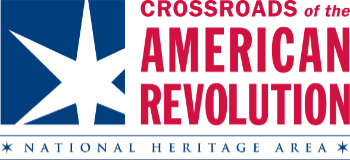Biography People
Israel Carle Full Biography
I was born October 1, 1757 on the farm owned by my parents, Jacob and Elizabeth Carle, in Trenton Township, Hunterdon County, where I grew up with my three older sisters and two older brothers. My family believed we were descended from French Huguenot colonists and we were all members of the Presbyterian Church. My father’s farm was very large and in 1779 he paid taxes on 447 acres of land, five horses, twelve cows, fourteen pigs, and one male slave. Only slave men over 16 years old who were capable of working were taxed, so our other slaves were not taxed. At that time, I was twenty-two years old and was taxed separately as a single man who keeps a horse. That horse was very important to me for reasons that I will explain.
I was just eighteen when the Provincial Congress in New Jersey passed a militia law in June 1775 and I was required to sign up with my local militia infantry company. Having been raised around horses, I wanted to be a cavalryman, but Hunterdon County did not have a troop, so I joined the nearby Middlesex County troop of Captain Robert Nixon. I wasn’t satisfied just being a trooper and, although I was only nineteen years old, I wanted to be an officer. When a troop was authorized for Hunterdon County in 1777, I offered my services and was named its captain. I actually had already begun recruiting, and my troopers had begun performing their duties, before I was officially commissioned as captain, just six days after my 20th birthday.
So, when taxed in 1779 I was not simply a young man who owned a horse; I was the proud captain of the Hunterdon County militia light horse troop. Even though it had been true from the beginning, the 1781 militia law officially stated that each trooper must provide himself with a good horse, a saddle properly outfitted with a pair of pistols and holsters, a cartridge box holding twelve cartridges of the correct size for his pistols, a broad sword and belt, and a cloak that could cover all his arms and accoutrements. We were not just farmers riding horses and carrying guns so the law required us to be equipped “in like Form and Manner as are usual and accustomed in the Equipment of Cavalry.” We might be only part-time soldiers, but we had to be equipped like professionals. Providing all these items was an economic sacrifice for my troopers and their families so most men came from families similar to mine.
My troop served for the rest of the war and almost every month at least some of my troopers were out scouting to gather information about the British and Loyalist forces. Troopers often carried messages between government and military leaders, or helped to guard and protect them. My troopers made many other contributions to the war, including escorting supply wagons and collecting cattle to prevent the British or Loyalists from taking them. We also participated in the important battles of Monmouth and Springfield. As a leader, I wanted to learn everything I could about commanding light horse troopers. There were a number of books available about military matters and I became owner of a book published in Philadelphia in 1775 entitled Military Instructions for Officers Detached in the Field, by Roger Stevenson. General Washington recommended this book to all his officers because it gave instructions on how to reconnoiter for information successfully and carry out the small scale, local actions that were basic to the role of the militia, and our light horse in particular. Several times during the war I, along with other captains of county light horse troops, petitioned the legislature to form us into a regiment, separate from the infantry militia. However, the legislature rejected our petitions. This meant that my troop remained attached to the First Hunterdon Regiment under the command of Colonel Joseph Phillips of Maidenhead Township.
After the war ended, I continued to serve as captain of the Hunterdon light horse. When General Washington passed through Trenton in 1789 on his way to New York City to be inaugurated as our first President, my troop escorted him from Trenton to Rocky Hill. When the Whiskey Rebellion broke out in western Pennsylvania, my troop was one of the militia units called out to help put down the rebellion in 1794. In addition to the militia I was also active in civic affairs, for example I was one of the stockholders in the Trenton Library Company. My family continued to be very active in the Presbyterian Church and when I died in 1822 I was buried near other Revolutionary War veterans in the Presbyterian Church cemetery in Trenton Township, just across the Scotch Road from my family farm.
